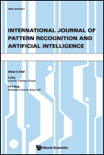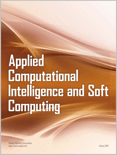
INTERNATIONAL JOURNAL OF PATTERN RECOGNITION AND ARTIFICIAL INTELLIGENCE
metrics 2024
Exploring the Synergy of Pattern Recognition and AI
Introduction
INTERNATIONAL JOURNAL OF PATTERN RECOGNITION AND ARTIFICIAL INTELLIGENCE, published by WORLD SCIENTIFIC PUBL CO PTE LTD, is a prestigious academic journal established in 1995 that serves as a critical platform for disseminating innovative research in the rapidly evolving fields of artificial intelligence, pattern recognition, and computer vision. With a focus on advancing theoretical and applied methodologies, the journal aims to bridge the gap between research and practical applications, making it essential reading for researchers, professionals, and students alike. The journal holds strong rankings within its categories, placing it in the Q4 for Artificial Intelligence, Q3 for Computer Vision and Pattern Recognition, and Q3 for Software as of 2023. Despite its growing influence, it continues to provide a rich resource for studies at the intersection of machine learning and computer science. The INTERNATIONAL JOURNAL OF PATTERN RECOGNITION AND ARTIFICIAL INTELLIGENCE not only contributes to academic discourse but also acts as a catalyst for technological advancement, making a significant impact on the scientific community.
Metrics 2024
 0.30
0.30 0.90
0.90 1.00
1.00 62
62Metrics History
Rank 2024
Scopus
IF (Web Of Science)
JCI (Web Of Science)
Quartile History
Similar Journals

MACHINE VISION AND APPLICATIONS
Exploring the Intersection of Vision and Application.MACHINE VISION AND APPLICATIONS is a distinguished peer-reviewed journal published by SPRINGER, serving as a vital platform for innovative research in the fields of computer vision, pattern recognition, and their applications within hardware and software systems. Since its inception in 1988, the journal has been at the forefront of disseminating cutting-edge findings and advances in machine vision technologies, significantly contributing to the global academic discourse. With an impressive track record, the journal ranks in the Q2 category across various domains in the 2023 Scopus rankings, reflecting its esteemed position in Computer Science Applications, Computer Vision and Pattern Recognition, Hardware and Architecture, and Software. Although it does not currently offer open access options, MACHINE VISION AND APPLICATIONS remains a critical resource for researchers, professionals, and students eager to explore emerging trends and methodologies in the rapidly evolving landscape of machine vision.

Cognitive Computation
Pioneering Research at the Nexus of Cognition and TechnologyCognitive Computation is a prominent journal published by Springer, focusing on interdisciplinary research at the intersection of cognitive sciences and computational methods. With an ISSN of 1866-9956 and an E-ISSN of 1866-9964, this journal has established itself as a leading resource for novel advancements and methodologies from 2009 through 2024. It is categorized in the top quartile (Q1) for 2023 in influential fields such as Cognitive Neuroscience, Computer Science Applications, and Computer Vision and Pattern Recognition. With impressive Scopus rankings including a 14th position in Cognitive Neuroscience and a percentile rank of 88th, the journal serves as a crucial platform for researchers and professionals eager to explore the cognitive processes underlying computational techniques. Although it does not operate under an open access model, the richness of research published within its pages contributes significantly to the academic discourse in these rapidly evolving domains, making it an essential read for scholars and practitioners alike.

Machine Intelligence Research
Advancing the Frontiers of Artificial IntelligenceMachine Intelligence Research is a premier academic journal published by SPRINGERNATURE, dedicated to advancing knowledge in the rapidly evolving fields of Artificial Intelligence, Applied Mathematics, and more. With its ISSN 2731-538X and E-ISSN 2731-5398, the journal is recognized for its impact, holding a distinguished position in various Q1 categories for 2023, including Computer Vision and Pattern Recognition and Control and Systems Engineering. Operating under an Open Access model, it ensures that groundbreaking research from China and around the world remains accessible to a global audience, promoting collaboration and innovation. As a beacon for researchers, professionals, and students, Machine Intelligence Research aims to disseminate high-quality research findings, innovative methodologies, and influential theories, thereby shaping the future landscapes of science and technology.

Cognitive Computation and Systems
Fostering Collaboration in Cognitive Computation and Systems.Cognitive Computation and Systems is an innovative open-access journal published by Wiley, dedicated to advancing the fields of Artificial Intelligence, Cognitive Neuroscience, and Computer Science Applications. Based in the United Kingdom, this journal has established itself as a key resource for researchers, students, and professionals alike since its inception in 2019. With a focus on the convergence of cognitive theories and computational methodologies, Cognitive Computation and Systems aims to publish high-quality research that bridges holistic cognitive processing with algorithmic design. Although the journal is currently categorized in the lower quartiles of its fields, it provides a unique platform for disseminating pioneering ideas that can drive the vital intersection of computer vision, pattern recognition, and psychology. Scholars can take advantage of its open-access model, ensuring that research findings are freely available, thus promoting wider knowledge sharing and collaboration within these rapidly evolving domains. With its ambitious scope and commitment to quality, this journal is poised to make a significant impact in its respective fields.

Applied Computational Intelligence and Soft Computing
Advancing the Frontier of Intelligence and ComputingApplied Computational Intelligence and Soft Computing, published by HINDAWI LTD, is a premier open access journal that has been disseminating critical research since 2009, focusing on the intersection of artificial intelligence and soft computing. With an impressive array of quartile rankings in 2023, including Q2 in Civil and Structural Engineering and Computational Mechanics, this journal has established itself as a significant contributor to the fields of computer science and engineering. Based in Egypt, it plays a vital role in advancing knowledge by providing researchers, professionals, and students with easy access to high-quality studies. The journal’s rigorous peer-review process ensures that only the most impactful research is highlighted, making it an essential resource for those looking to stay abreast of the latest innovations and methodological advancements in applied computational intelligence. Its Scopus rankings further affirm its influence and reputation within the academic community, exemplifying its commitment to facilitating collaboration and fostering intellectual discourse in various scientific domains.

Evolutionary Intelligence
Fostering Innovation Through Interdisciplinary CollaborationEvolutionary Intelligence is a prestigious journal published by Springer Heidelberg, dedicated to the interdisciplinary study of Artificial Intelligence, Cognitive Neuroscience, Computer Vision, and Mathematics. With its ISSN 1864-5909 and E-ISSN 1864-5917, the journal has established a significant presence in the academic community since its inception in 2008. Spanning a diverse range of topics relevant to both theoretical and empirical research, it has achieved impressive rankings, including Q3 in Artificial Intelligence and Cognitive Neuroscience, and Q2 in Computer Vision and Pattern Recognition as of 2023. With a strong Scopus ranking that places it in the top quartiles of its field, Evolutionary Intelligence serves as an essential platform for scholars and practitioners seeking to advance knowledge and foster innovation in these dynamic fields. Researchers, professionals, and students alike will find invaluable insights and cutting-edge findings that challenge existing paradigms and inspire future explorations in intelligence-related studies.

Wiley Interdisciplinary Reviews-Data Mining and Knowledge Discovery
Elevating interdisciplinary dialogue in data mining and discovery.Wiley Interdisciplinary Reviews: Data Mining and Knowledge Discovery is a premier journal published by WILEY PERIODICALS, INC, dedicated to the rapidly evolving fields of data mining and knowledge discovery. Since its inception in 2011, this journal has emerged as a vital resource for researchers and practitioners alike, boasting an impressive Q1 ranking in the field of Computer Science (miscellaneous) as of 2023, and is recognized for achieving a remarkable 98th percentile in Scopus rankings. The journal aims to disseminate high-quality, interdisciplinary research that addresses the theoretical and practical implications of data mining techniques, innovative algorithms, and knowledge discovery paradigms. With a commitment to fostering knowledge exchange among academia and industry, Wiley Interdisciplinary Reviews is essential for those looking to remain at the forefront of data science advancements. Researchers and professionals will find relevant discussions, cutting-edge methodologies, and comprehensive reviews that contribute significantly to the field's development.

International Journal on Document Analysis and Recognition
Transforming Document Processing with Cutting-edge ResearchInternational Journal on Document Analysis and Recognition (IJDAR), published by Springer Heidelberg, stands at the forefront of research and advancements in the field of document analysis, computer vision, and pattern recognition. With its ISSN 1433-2833 and E-ISSN 1433-2825, the journal is an essential resource for researchers and practitioners focusing on innovations in automatic document processing, image analysis, and artificial intelligence applications in document retrieval and recognition. Recognized as a Q1 journal in multiple relevant categories, including Computer Science Applications, Computer Vision and Pattern Recognition, and Software, IJDAR boasts impressive Scopus rankings that position it among the top-tier publications in these domains. The journal’s converged publication years from 1998 to 2024 offer a rich repository of knowledge essential for both theoretical and practical advancements, ensuring that researchers, professionals, and students can keep pace with the latest findings and methodologies. Access options may vary, but the journal continuously strives to facilitate the dissemination of high-quality research that contributes significantly to the academic discourse in document analysis and recognition.

Acta Universitatis Sapientiae Informatica
Driving Excellence in Computer Science ScholarshipActa Universitatis Sapientiae Informatica, published by SCIENDO, is an esteemed open-access journal in the field of computer science and informatics. Since its transition to open access in 2013, the journal has fostered an inclusive academic environment that allows researchers, professionals, and students to freely access cutting-edge research and innovations. With its ISSN 1844-6086 and E-ISSN 2066-7760, Acta Universitatis Sapientiae Informatica aims to disseminate high-quality scholarly articles that cover a broad scope of topics ranging from theoretical foundations to practical applications in informatics. Located in Warsaw, Poland, the journal serves as an essential platform for advancing the discourse in computer science, thus playing a critical role in both regional and international research communities.

CAAI Transactions on Intelligence Technology
Fostering Global Dialogue on Intelligence TechnologyCAAI Transactions on Intelligence Technology is a premier peer-reviewed journal published by WILEY, dedicated to advancing the fields of Artificial Intelligence, Computer Networks and Communications, Computer Vision and Pattern Recognition, Human-Computer Interaction, and Information Systems. Since its inception in 2017, this Open Access journal has rapidly ascended the ranks, achieving Q1 quartile status across multiple categories as of 2023, and is recognized for its rigorous standards and innovative research dissemination, evidenced by impressive Scopus rankings, including Rank #12 in Computer Vision and Pattern Recognition. Through its commitment to providing a platform for high-quality research, the journal invites contributions from scholars globally, fostering a collaborative environment that stimulates intellectual exchange and encourages advancements in intelligent technology. Addressed to researchers, professionals, and students alike, CAAI Transactions on Intelligence Technology serves as a vital resource for those aiming to stay at the forefront of technological innovation.